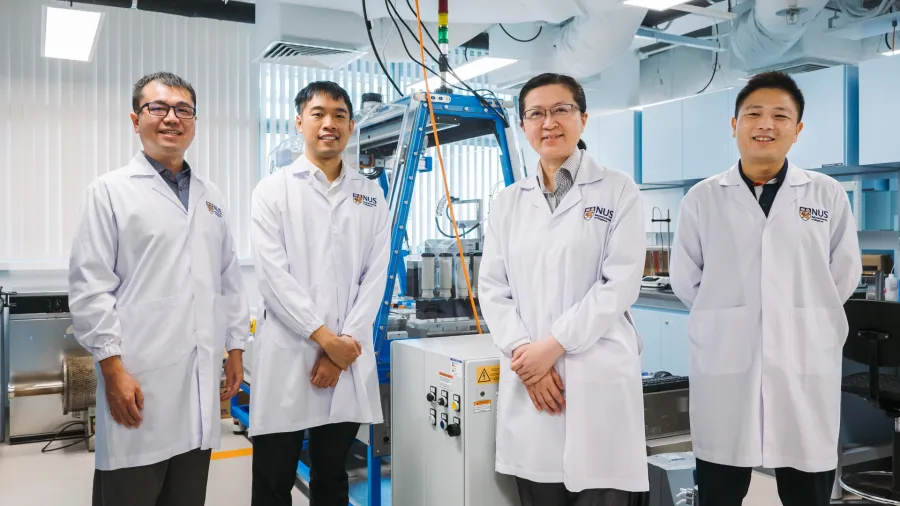
NUS’ new hydrogen research institute starts operation
The Centre for Hydrogen Innovations has received S$25m investment.
The new Centre for Hydrogen Innovations (CHI) of the National University of Singapore (NUS) has started operations in pursuit of developing technology to make hydrogen commercially viable as an energy source.
The CHI, which is the first of its kind in Southeast Asia, has so far received some S$25m worth of investment.
Of which S$15m was an endowed gift from Temasek, whilst the rest were additional funding from the NUS.
“The Centre for Hydrogen Innovations will conduct ground-breaking research on making green hydrogen affordable for Singapore,” Professor Ho Teck Hua, NUS Senior Deputy President and Provost, said.
“The Centre and the existing NUS Green Energy Programme, which focuses on carbon capture and utilisation, are both key to NUS’ strategy of offering world-class, innovative solutions to reduce our reliance on fossil fuels as a source of energy.”
READ MORE: Linde, ST Telemedia, YTL to study hydrogen power use in Singapore
The CHI will initially host nine innovative projects in hydrogen-related research, granting each a total of up to S$250,000.
The institute noted that the research projects should focus on creating “disruptive” technologies” aimed at developing the hydrogen economy in Singapore.
“Through the new Centre, we aim to advance hydrogen-related R&D in Singapore to solve high-value problems that can significantly bring down the cost of green hydrogen as a fuel,” Professor Liu Bin said.
“At the same time, we will provide talent training for both academia and industry to grow the pool of hydrogen-related researchers, as well as upskill the workforce to prepare Singapore for a hydrogen economy.”






![Cross Domain [Manu + SBR + ABF + ABR + FMCG + HBR + ]](https://cmg-qa.s3.ap-southeast-1.amazonaws.com/s3fs-public/styles/exclusive_featured_article/public/2025-01/earth-3537401_1920_4.jpg.webp?itok=WaRpTJwE)
![Cross Domain [SBR + ABR]](https://cmg-qa.s3.ap-southeast-1.amazonaws.com/s3fs-public/styles/exclusive_featured_article/public/2025-01/pexels-jahoo-867092-2_1.jpg.webp?itok=o7MUL1oO)









 Advertise
Advertise


